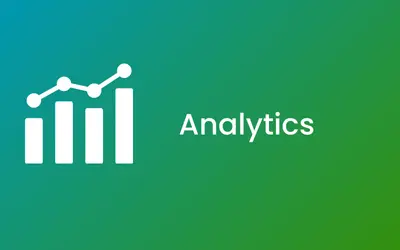Analytics is a fast-growing field that involves collecting, processing, and analyzing data to make informed decisions. With global businesses becoming data-driven, the demand for skilled professionals in analytics is increasing rapidly. Tampa, Florida, has emerged as a center for analytics education, with several reputable colleges and universities offering courses in the field. The University of South Florida (USF) is one of the most renowned universities in the Tampa Bay area, offering a host of analytics courses. USF’s Muma College of Business’s Master of Science in Business Analytics program is ranked 15th among public institutions by U.S. News & World Report. The course aims to prepare students for leadership roles in data-driven organizations by providing them with skills in data mining, statistical analysis, and machine learning. The program has core courses such as Data Mining, Regression Analysis, and Predictive Analytics, and elective courses such as Fraud Analytics, Social Media Analytics, and Business Intelligence. Another excellent analytics course is offered at the University of Tampa, which offers both undergraduate and graduate programs. The Sykes College of Business offers a Bachelor of Science in Business Analytics that provides students with the foundational knowledge needed for a career in analytics. The curriculum includes courses such as Introduction to Data Science, Business Statistics, and Data Visualization. The University of Tampa also offers a Master of Science in Business Analytics, which focuses on advanced data analysis, predictive modeling, and optimization. The program boasts experiential learning opportunities, including capstone projects, internships, and case competitions. St. Leo University's Donald R. Tapia School of Business offers a Bachelor of Science in Data Analytics that teaches students how to design, implement, and evaluate data solutions that drive business decisions. The program incorporates courses from computer science, mathematics, statistics, and management to provide students with a comprehensive understanding of data analytics. The curriculum includes courses such as Database Design and Management, Data Visualization, and Business Intelligence. Apart from these universities, other reputable schools offering analytics courses in Tampa include Florida Institute of Technology, Florida Polytechnic University, and Hillsborough Community College. Attending an analytics course in Tampa has several benefits. The region is home to several large corporations and highly sought-after startups, offering plenty of professional opportunities for graduates. For example, Tampa is a fast-growing hub for financial services companies, such as JPMorgan Chase, USAA, and Citigroup. Additionally, graduates may find job opportunities in other sectors such as healthcare, information technology, retail, and hospitality. Moreover, analytics professionals in Tampa earn a higher salary than the national average. According to the Bureau of Labor Statistics, computer and information research scientists in the Tampa metropolitan area had an annual average wage of $110,240, higher than the national average of $98,310. In conclusion, pursuing an analytics course in Tampa is an excellent option for students looking to break into the field. With the region's burgeoning economy and several reputable universities offering programs, students have access to a wealth of educational resources and employment opportunities. Whether you choose to attend the University of South Florida, the University of Tampa, or another institution in the area, you are sure to receive a top-notch data analytics education that will help you succeed in a rapidly growing field.

₹60,000


Watch how students, freshers, and professionals transformed their careers with Skillfloor's Analytics Courses Reviews
Hurry Up!
Limited seats call us now for amazing discounts on Analytics Courses course



Skillfloor is a Government-Recognized Skill Development Institute under Startup India (DPIIT), offering career-focused certification programs in Analytics, Artificial Intelligence (AI), Data Science, Digital Marketing, SEO, and related domains. As one of India's largest training institutes, our courses emphasize hands-on projects, expert mentorship, and skills aligned with real hiring needs. With flexible learning options - online, offline, and hybrid, plus 100% scholarships for selective students, we make quality, job-ready education accessible.
Explore the program that aligns with your goals and take the next step with Skillfloor.



- Overview of data analysis and its importance in business
- Types of analytics: Descriptive, Predictive, Prescriptive
- Role of data in decision-making processes
- Introduction to common tools: Tableau, PowerBI, Excel
- Ethical considerations in data collection and analysis
- Data sources: Primary and secondary data
- Data collection methods (surveys, web scraping, databases)
- Data cleaning techniques (handling missing values, outliers)
- Data transformation and feature engineering
- Data storage concepts (structured vs. unstructured data)
- Descriptive statistics: Mean, median, mode
- Data visualization basics (histograms, scatter plots)
- Identifying data patterns and trends
- Outlier detection and handling methods
- Correlation and causation analysis
- Inferential statistics and probability theory
- Hypothesis testing (t-tests, chi-square tests, ANOVA)
- Measures of central tendency and variability
- Confidence intervals and margin of error
- Regression analysis: Linear and logistic regression
- Principles of effective data visualization
- Types of charts and their uses (bar, line, pie, heatmaps)
- Designing dashboards for different audiences
- Interactive visualization techniques
- Data storytelling for impactful presentations
- Time series analysis and forecasting methods
- Clustering and segmentation analysis
- Decision trees and classification techniques
- Introduction to machine learning in business analytics
- Model evaluation and selection
- Basics of SQL for data manipulation
- Creating databases and relationships
- Aggregating data with SQL (GROUP BY, JOIN)
- Data modeling for business intelligence (star and snowflake schemas)
- Case study: Building a business model with SQL
- Connecting and preparing data in Tableau
- Creating basic visualizations (charts, maps)
- Advanced Tableau functions (LOD calculations, table calculations)
- Building interactive dashboards and stories
- Publishing and sharing visualizations on Tableau Server/Online
- Introduction to PowerBI workspace and components
- Data import and transformation with Power Query
- Data modeling and relationships in PowerBI
- Creating and customizing visualizations
- Publishing and collaborating on PowerBI Service
- Selecting a real-world dataset for analysis
- Defining business questions and objectives
- Conducting data analysis and visualization
- Presenting findings in a comprehensive dashboard
- Peer review and feedback on project